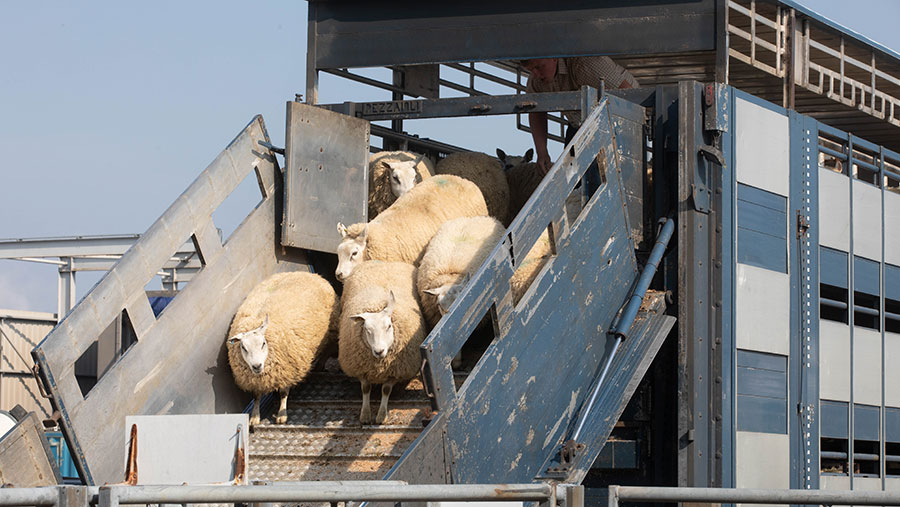Coronavirus: Traders only at livestock marts, say auctioneers
 © Tim Scrivener
© Tim Scrivener The Livestock Auctioneers Association (LAA) says it is monitoring the coronavirus situation “on an hourly basis” to ensure marts do not become sites of concern for farmers.
Marts are open for business and sales were continuing – but farmers should stay at markets for as little time as possible, said LAA secretary Chris Dodds.
See also: Coronavirus: Auctioneers report record cull ewe prices
“We have released guidance to our members and are advising farmers to only stay at auction marts for as long as it takes to conduct business,” he added. “We also advise that mart canteens remain closed, and suitable and plentiful hand washing facilities are made available.
“The latest public health advice should always be followed, and this is very much in line with our existing commitment to the highest standards of health, safety and biosecurity.”
Mr Dodds said the LAA was in regular dialogue with the government to ensure auction marts continued to operate in a way that was not detrimental to human health.
Restricted attendance
The LAA is recommending restricted attendance of customers, with only those directly conducting business to enter the marts.
Mr Dodds said it was also recommending a review of non-essential food chain supply sales, such as fur and feather, or shrub and plant sales.
“It is important that our auction marts can support and minimise any disruption to the red-meat trade during the coronavirus outbreak,” he said.
“At the same time, all necessary steps are being taken to protect the health and safety of staff and customers across our auction marts.”
But many markets are reporting buoyant trade. Bernie Hutchinson, managing director of Barbers Auctions at Market Drayton, said trade was easier on the hoof than it is on the hook.
“The livestock market is not uniform, like it is selling direct to processors. It’s a much broader brush – there is a vast array of commodity and the market can cater for everything.”
‘Doors open’
“The deadweight market will only want certain specifications, but the livestock doors are always open, there is something for everyone, and everything for someone.”
Charlie Coleman of Frome Livestock Auctioneers said: “We have seen trade back to the numbers of two or three years ago, selling to the same or even showing an improvement.”
Mr Coleman believes the key is the fact that the market is always there.
“Abattoirs don’t want cattle every week. Markets, however, are showing a fair trade every week, because they are meeting a demand, and that is creating a selling opportunity.”
Jack Pickup at Gisburn Auction Marts said numbers were still strong, with a good audience of buyers for all classes of cows, both for further feeding and immediate slaughter.
“Cull cows have kept rising in price, with cull cows topping at 161p/kg, or £1,104, for a 686kg purebred Limousin, and cull bulls topping at 147p/kg, or £1,793, for a 1220kg British Blue.”
He added: “Dairy culls have also seen a lift in price, with the best end regularly selling between the 110-120p/kg mark and leaner feeding-type cows anywhere between 85-100p/kg.”
